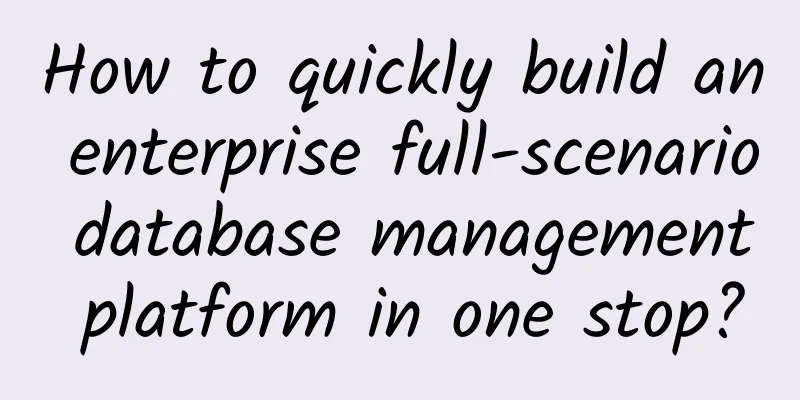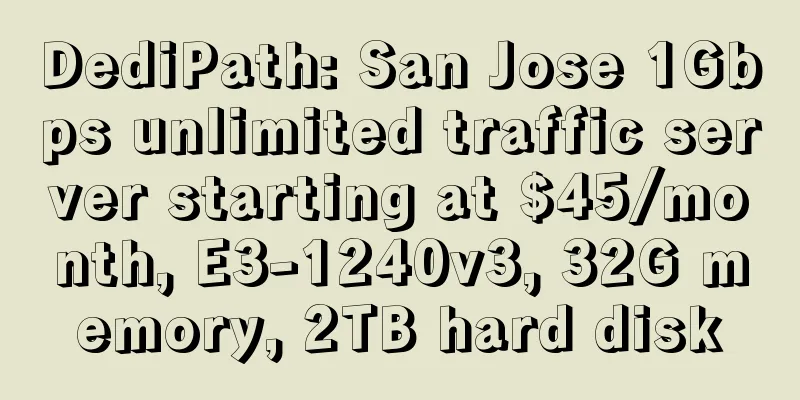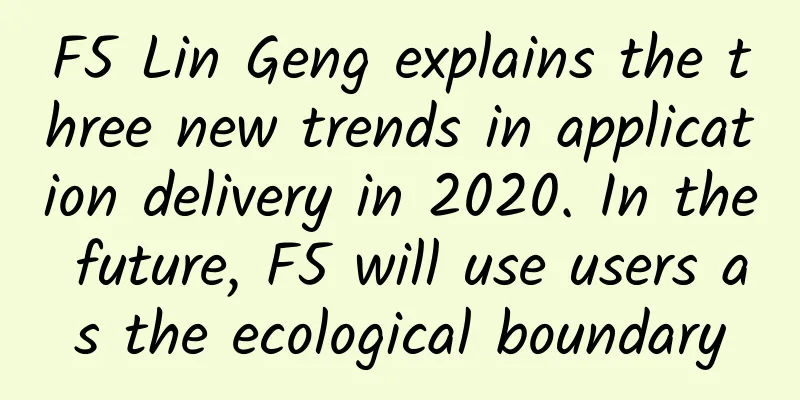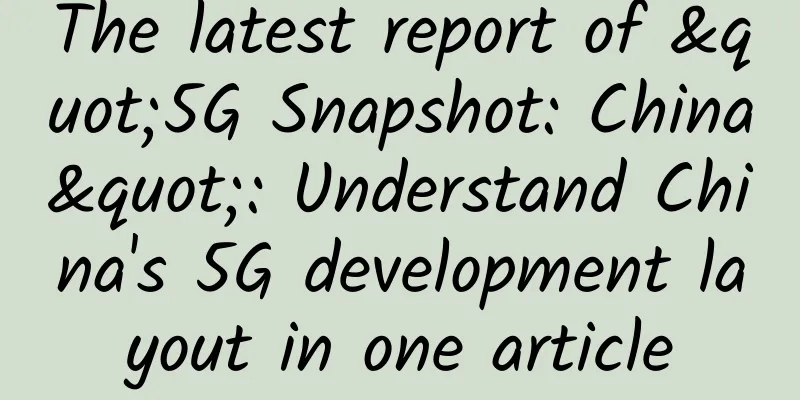How to quickly build an enterprise full-scenario database management platform in one stop?

|
Gartner's report shows that by 2022, 75% of databases will adopt cloud databases. At the same time, IDC predicts that the traditional deployment database market will reach US$1.3 billion by 2024. For enterprises to transform and upgrade digitally, actively embracing open source and cloud-native databases has become an important trend and an inevitable choice. At present, Alibaba Cloud Database has a market share of more than 50% in the public cloud market. In 2020, Alibaba Cloud Database became the only Chinese vendor to enter the Leaders quadrant of Gartner's Magic Quadrant for Databases, ranking first in Asia Pacific and third in the world. In order to better serve the traditionally deployed database market and provide more comprehensive services to government and enterprises at all stages of cloudification, Alibaba Cloud has launched a lightweight product for independent scenarios in the agile version of the hybrid cloud: the agile version of the database scenario. Product Introduction The Agile Database Scenario is an enterprise-level cloud database management platform provided by Alibaba Cloud that integrates transactions, analysis, transmission, and governance. It helps enterprises quickly build stable, secure, and economical full-scenario database solutions, and helps enterprises quickly upgrade traditional databases and data warehouses such as Oracle, DB2, and Teradata. Agile Database Scenario Product Matrix Core Features 【Full-scenario database engine service】 The global database engine services include Alibaba's self-developed cloud-native Oracle high-compatibility database PolarDB-O, cloud-native distributed database PolarDB-X, cloud-native analytical database AnalyticDB, etc., as well as open source databases such as MySQL and Redis, and Alibaba's self-developed rich database ecosystem tools such as DTS, DMS, ADAM, etc. 【Intelligent database management service】 Provide unified intelligent management services for all database services, including DBaaS services that provide database instance management capabilities, core features such as instance lifecycle management, backup and recovery system, security encryption management, database log and SQL audit, monitoring alarm, high availability management, etc., as well as DBStack platform-level operation and maintenance management (Manager), providing services such as security process (such as account security) management, external device system management, host management, database instance task management, instance resource management, disaster recovery management, platform upgrade and expansion, etc. That is, the platform is divided into database service and management platform service. Users can access the management platform through the system console, OpenAPI, SDK and other control links, and access the database service through the access connection provided by the instance. Product Advantages 【Rich database engine services】 The Agile Edition database scenario provides a global database engine that covers OLTP, OLAP, and NoSQL database services, as well as distributed databases and Oracle-compatible databases, meeting the database requirements of most scenarios of enterprise databases. 【Complete database ecosystem tools】 The database ecosystem tool system for the agile database scenario includes data management, database and application migration tools, and data transfer. Data management provides users with management of objects and data in the database. Database and application migration tools evaluate compatible change points for upgrading from traditional databases to DBStack. Data transfer includes data migration, synchronization, and subscription. Migration refers to migrating data from other databases to DBStack, or migrating data to other databases. Synchronization refers to uninterrupted database synchronization between multiple databases. Subscription refers to providing solutions for other systems to subscribe to data from the database. 【Cross-platform deployment capabilities】 The agile version database scenario has the feature of cross-platform deployment and can be deployed on a physical server or a virtual machine, supporting multiple operating systems such as Linux and domestic operating systems. 【Cloud-native control system】 The agile version of the database scenario provides all the cloud-native management and control capabilities of Alibaba Cloud's public cloud database, covering high availability, high reliability, high elasticity, performance, scalability, manageability, cost-effectiveness, security and compliance, and other aspects. 【Database comprehensive solution】 The agile version of the database scenario provides rich database engine services and a complete tool ecosystem, allowing users to easily combine stable, reliable, and cost-effective comprehensive database solutions for business and scenarios. Application Scenario The agile version of the database scenario already supports a variety of database engines and database ecosystem tool products, and the flexible product portfolio can meet different application scenarios. For example, in traditional traffic analysis systems, it is necessary to introduce offline computing and online computing engines at the same time, and realize the intercommunication of online and offline data through scheduled ETL tasks. Data redundancy is serious and there is a T+1 delay. The agile version of the database scenario DBStack AnalyticDB PostgreSQL database engine supports offline integration, and a set of storage provides both online and offline computing, which greatly reduces business complexity and improves data real-time performance. In comparison, data timeliness is improved from T+1 to seconds, and simple indicators, composite indicators and multi-dimensional indicators can be quickly found, providing real-time online services for the entire link to query tens of billions of data in seconds. With the digital transformation of enterprises, the use of data will involve all aspects of business, and there will be higher requirements for the overall reliability, availability, storage capacity, performance and expansion of the database system that supports data storage. At the same time, the utilization rate of database resources will be more full, and enterprises will also expect to meet the complete closed loop of data generation, processing, analysis and reuse on one platform. As a peer in digital innovation for government and enterprises, Alibaba Cloud Hybrid Cloud has launched an agile version of a lightweight product for independent scenarios - an agile version of database scenarios, to help government and enterprise customers quickly build a full-scenario database management platform in one stop and meet various enterprise usage needs. It will lead the upgrade of the database industry and advance enterprises into a new era of data management. |
<<: MaxCompute Spark resource usage optimization
>>: "Net Neutrality" Is Making a Comeback, Will the World Be a Better Place?
Recommend
Don’t understand TCP three-way handshake and four-way wave? Interviewer: Go back and wait for notification!
🌟 Opening: You think you know TCP? Actually... Co...
Cure the difficulty of choosing! What are the differences between 5G, Wi-Fi 6, and Wi-Fi 6E?
[[428494]] This article is reprinted from the WeC...
spinservers: $59/month - E3-1280v5, 32GB memory, 1TB NVMe, 30TB/10Gbps bandwidth
spinservers has just released several promotional...
RAKsmart: 30% off on all VPS, VPS hosting in Hong Kong/Japan/Los Angeles/San Jose starting from $1.99/month
RAKsmart's December year-end promotion has be...
Seize the critical period for large-scale application of 5G
As of the end of April, more than 1.6 million 5G ...
Network monitoring tool! Don't miss these 7 free open source tools
Editor's note: In the real estate market, the...
Remember who was to blame for a thread pool-induced fault?
This article is reproduced from the WeChat public...
Ruijie Networks: Linking Network + Security to Prevent Campuses from Becoming "Mines"
Campus networks have a large number of users and ...
Summary information: Journey Cloud/Eurasia Cloud/PIGYun/Wuluo Cloud/Jtti
Next, I will share some product and promotion inf...
Huawei takes a pragmatic approach to talent ecosystem construction and plans to produce 10,000 AI talents in three years
[51CTO.com original article] On the second day of...
API Gateway: Layer 8 Network
An API is a set of rules that govern the exchange...
Distributed Fiber Optic Sensors Global Market Report 2023
The global distributed fiber optic sensor market ...
RackNerd Spring Festival promotion KVM annual payment starts from $10.88, multiple computer rooms in Los Angeles/San Jose/Seattle
RackNerd has launched the 2022 Chinese New Year p...
What are digital certificates and signatures? This article explains it very well
Hello everyone, I am Brother Ming. I sorted out s...









